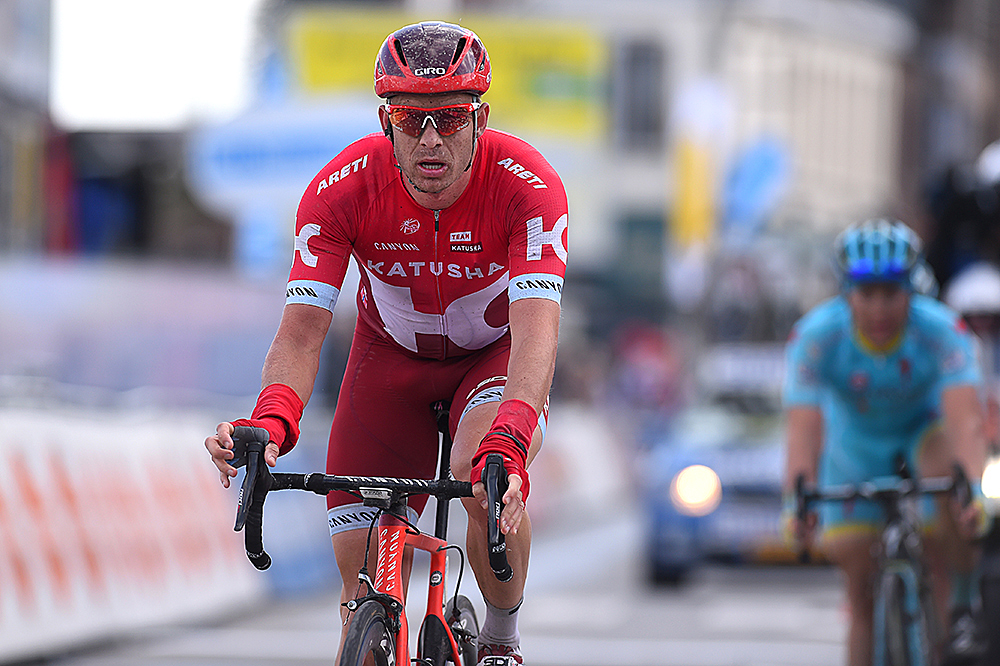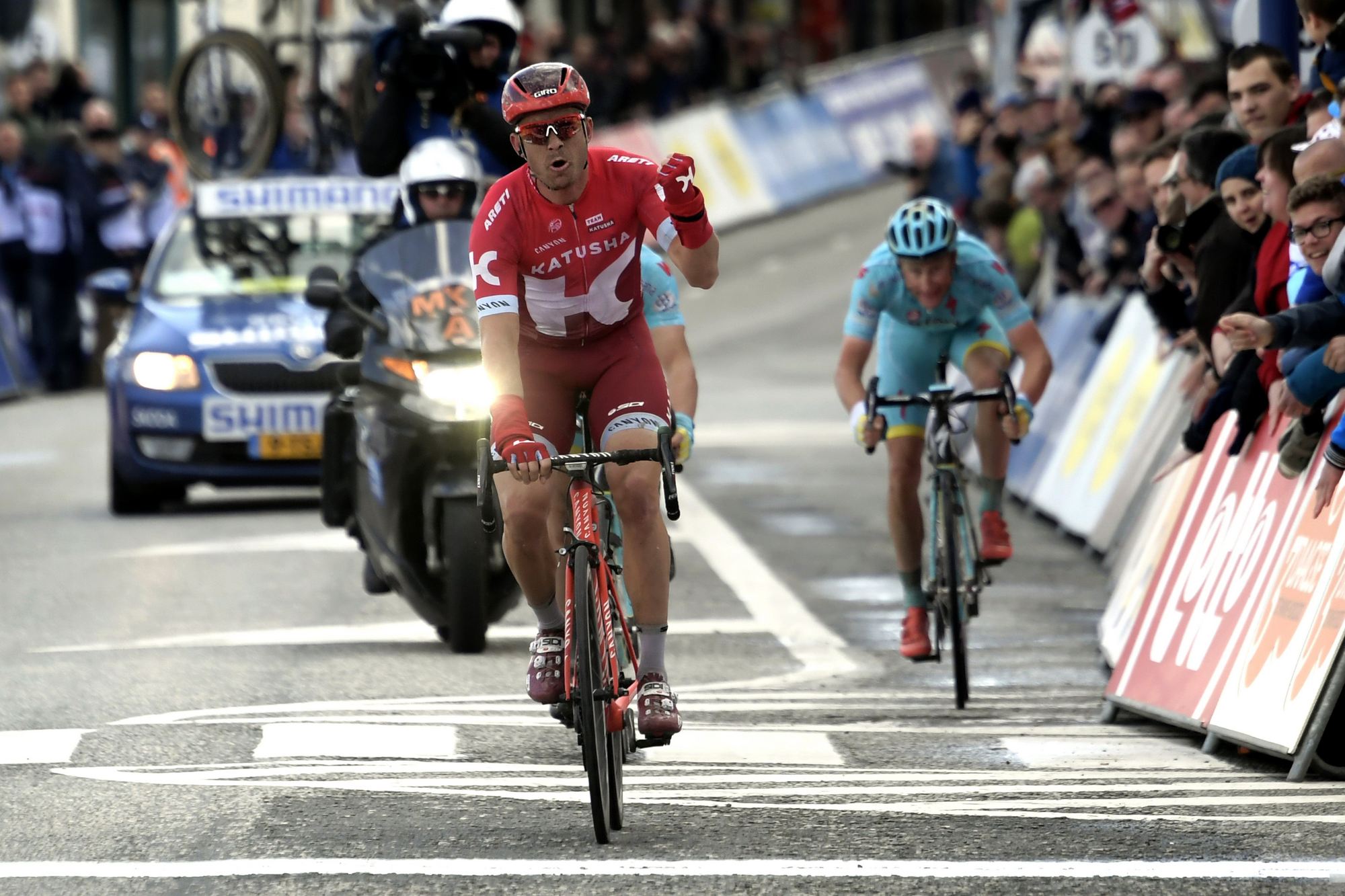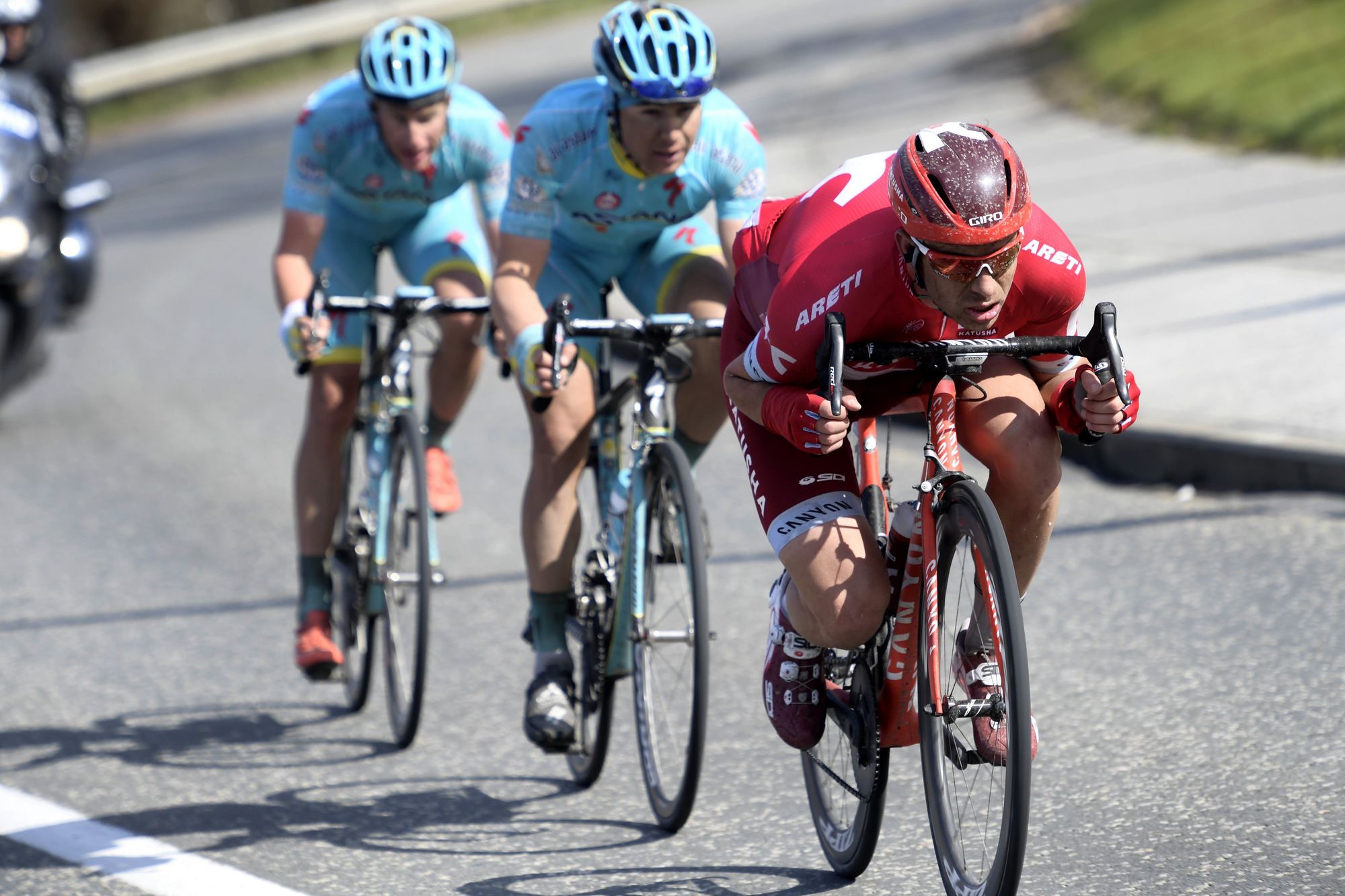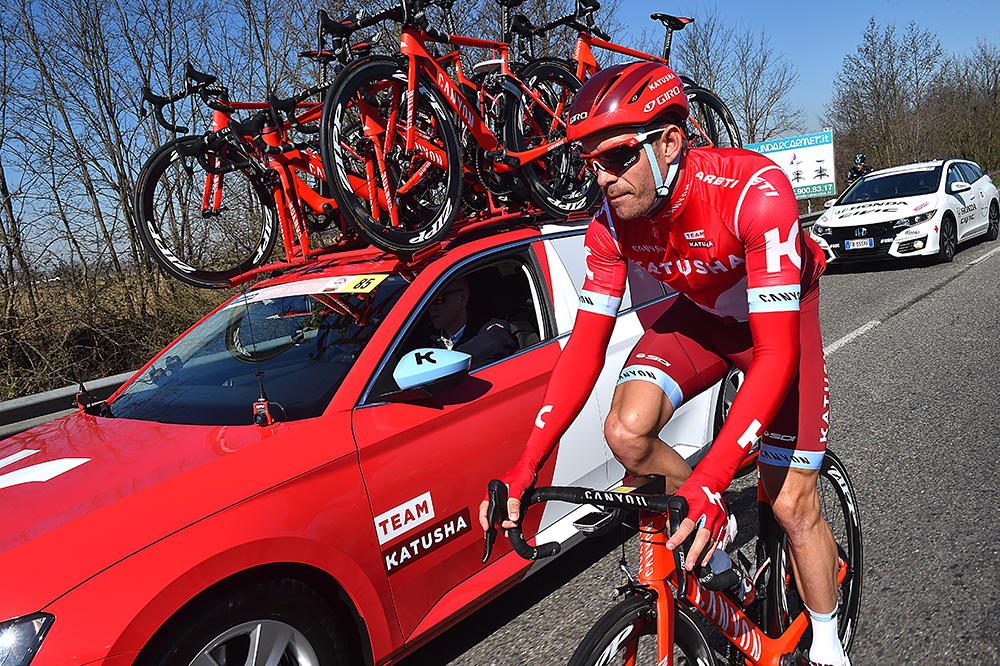Kristoff: I cannot be that bad when I won the race
Norwegian bounces back from illness at Three Days of De Panne




The proof in this instance was in the winning. Or as Alexander Kristoff (Katusha) put it on arriving in the press room after the opening stage of the Three Days of De Panne in Zottegem: “I cannot be that bad when I won the race.”
Kristoff’s Tour of Flanders defence was cast into doubt over the weekend when he struggled at E3 Harelbeke and then withdrew from Gent-Wevelgem altogether, citing illness. On the start line in De Panne on Tuesday morning, however, he stressed that his health was not a concern. Victory four hours later, a repeat of his triumph on the corresponding stage in 2015, lent credence to his words.
“I didn’t feel as strong as I did on this stage last year, but a win is a win,” Kristoff said. “I felt better than I did in Harelbeke, so for sure it was the sickness that affected me there. I was hoping to feel a bit stronger today, actually, but there are still two more days to come.”
A year ago, Kristoff underscored his status as the favourite for the Tour of Flanders byclaiming victory here in Zottegem, the first of three successive stage wins that set up him for final overall victory at the Three Days of De Panne.
This time around, Kristoff had two riders for company in the finale, though his win was no less hard fought. The wind-buffeted peloton fragmented shortly after leaving the start in De Panne, and Kristoff spent his afternoon in the Flemish Ardennes at the head of the race.
Kristoff was live to the danger when Lieuwe Westra (Astana) attacked on the Ten Bosse with 30 kilometres remaining, bridging up with Alexey Lutsenko (Astana) and Luke Rowe (Sky). Despite losing Rowe to a puncture at the foot of the Muur van Geraardsbergen, they reached the finish with a lead of 36 seconds over the main peloton.
“It was a hard day from the start with the crosswinds. I felt good at the start but in the end I started suffering again on the finishing circuit,” Kristoff said. “At one moment I thought I would be dropped. I said on the radio I didn’t feel good at all but I managed to suffer through it and hang on. It was me and two Astana in the end, and it played in my favour that it was not a one-day race. They were going for GC and they rode all the way to the finish line."
The latest race content, interviews, features, reviews and expert buying guides, direct to your inbox!
Although the Astana pair succeeded in forcing Kristoff to lead all the way through the final kilometre, the three-up sprint proved a formality. As Niki Terpstra discovered at last year’s Tour of Flanders, once the Norwegian winds up his monstrous gear, coming around him is easier said than done.
“If they’d played with me maybe they could have dropped me but we had to work all the way to the line for the overall time,” Kristoff said. “That played to my advantage so I could beat them in the sprint.”
Illness
Though Kristoff appears to have returned to the fullness of health, he revealed that his roommate and fellow countryman Sven Erik Bystrom now appears to have been laid low by the same ailment. “I don’t really know what it is. I know my wife was really sick one day with headache and a slight fever, then I got the same. Now Sven’s got it and he’s gone home,” he said. “I was almost two days off the bike. But yesterday I felt a bit better. My power was fine when I did some intervals in training, so I knew I could start.”
Once a staple of a Tour of Flanders contender’s build-up, the Three Days of De Panne’s pulling power has waned over the past decade, but Kristoff remains a rare devotee. To the surprise of many, he chose to stay in the race to the end and contest overall victory last year, rather than opt out after two days to rest up for the Ronde as so many others have done in recent years.
“Every year I’ve felt good after doing it, and I’ve always been quite good in Flanders,” he said. “For me it works fine. It’s like how I train at home: a three-day block and then two days of rest. It’s easier for me to go hard in a race than in training.
“I’m leading overall now and I want to keep it until the time trial. But if Westra rides as good as he did today, then maybe I will lose it there. I think I will struggle to do as good a time trial as last year.”
As at the start in De Panne, Kristoff had a thought, too, for the tragedy that has touched Belgian cycling over the past 48 hours. Antoine Demoitié died late on Sunday night after being struck by a motorbike following a crash at Gent-Wevelgem, while the peloton woke on Tuesday to the news that Daan Myngheer had died after suffering a heart attack during the Critérium International.
“That was really sad news, devastating news,” Kristoff said, adding of the debate over rider safety: “When I’m in the race I don’t really think about it, but for sure you have it in the back of your mind.”

Barry Ryan was Head of Features at Cyclingnews. He has covered professional cycling since 2010, reporting from the Tour de France, Giro d’Italia and events from Argentina to Japan. His writing has appeared in The Independent, Procycling and Cycling Plus. He is the author of The Ascent: Sean Kelly, Stephen Roche and the Rise of Irish Cycling’s Golden Generation, published by Gill Books.